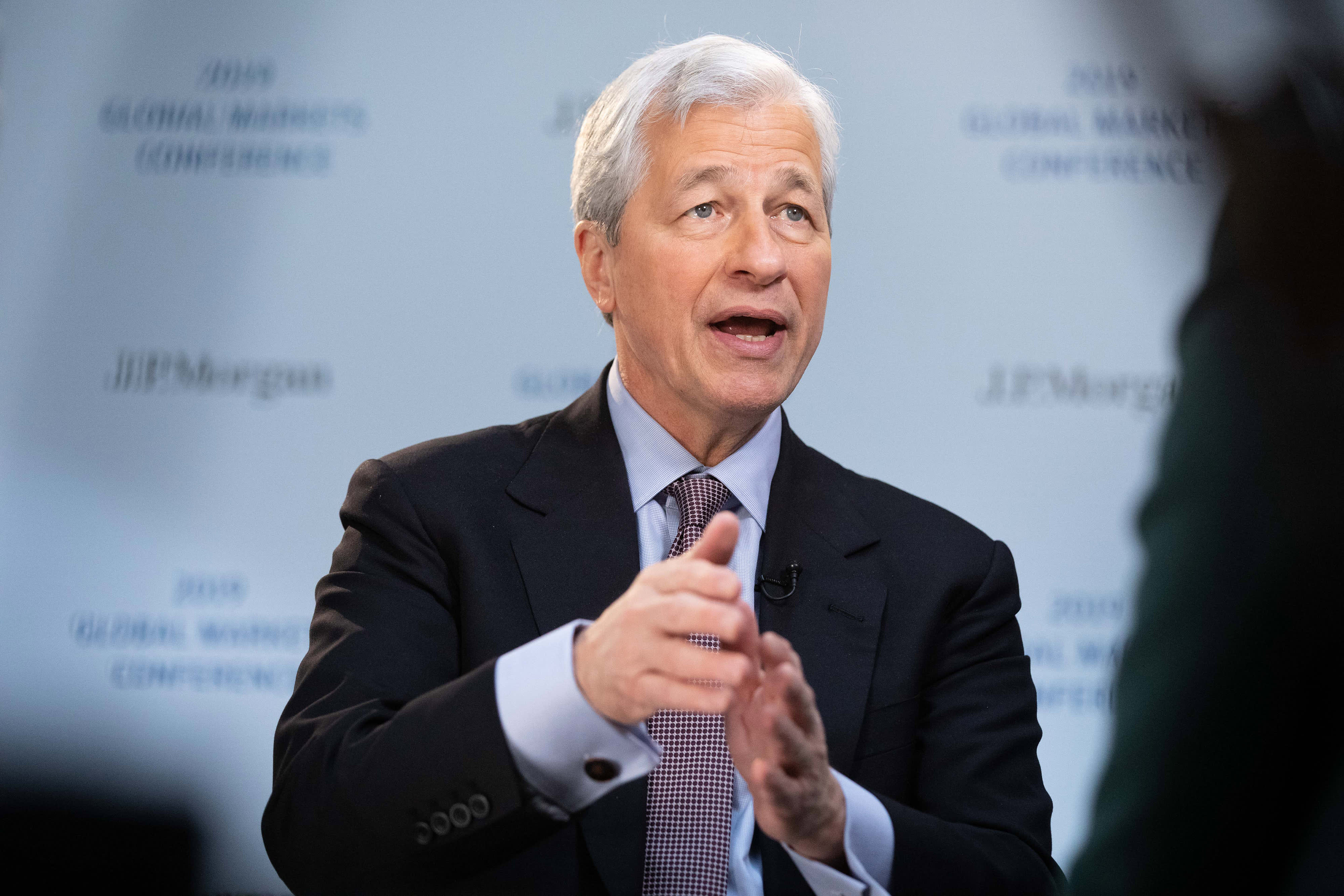Jamie Dimon, chief executive officer of JPMorgan Chase & Co., gestures while speaking during a Bloomberg Television interview at the JPMorgan Global Markets Conference in Paris, France, on Thursday, March 14, 2019.
Christopher Morin | Bloomberg | Getty Images
JPMorgan Chase has a set of policy recommendations for ways President-elect Joe Biden can prevent a coming wave of economic misery and reduce inequality in a post-Covid world, CNBC has learned.
The first priority is for lawmakers to agree on another round of pandemic relief payments to lower-income households and extending benefits for the unemployed, according to the paper, which can be found here. Failing to do so will result in unnecessary suffering as the pandemic deepens in coming months, according to Heather Higginbottom, head of the bank’s policy group, whose findings are backed by data from hundreds of thousands of Chase customers.
“We see how real households are weathering this, and can project that if they don’t have additional savings and income, they’re going to be in dire straits,” Higginbottom said in a phone interview. “We have a cliff of a bunch of programs that will expire at the end of the year. There are families relying on those payments, and many of them will be food insecure. We’ll see a lot of families feeling a lot of economic pain.”
The bank’s paper, which echoes remarks that CEO Jamie Dimon has made recently, adds another voice to ongoing negotiations for a follow-up stimulus relief bill after key elements of the March CARES Act lapsed. Lawmakers are now hashing out the details of a slimmed-down bill that includes a $300 per week supplemental jobless benefit and money for small business loans that could be voted on next week.
JPMorgan, the biggest U.S. bank by assets, began sharing the summary with members of the Biden transition team in the past week, said Higginbottom, a former Obama administration official.
The key elements of the paper – which include pushing for federal policy changes to boost family’s emergency savings and expanding affordable housing programs — are likely to find a receptive audience in the incoming Biden administration, which campaigned on the need to help the most vulnerable Americans.
But what adds heft to JPMorgan’s arguments are the anonymized customer data the bank says supports the rationale for reinstating unemployment benefits, especially as the economy weakens amid surging coronavirus cases nationwide. CARES Act money from earlier in the year helped Chase customers avoid falling behind on mortgage payments, and their spending and assets dropped immediately after benefits expired in August.
“There is concrete evidence that these expanded unemployment insurance payments have had a stimulative effect on the economy and will help individual families,” Higginbottom said. “They’ll spend that money and help the economy.”
Even if lawmakers succeed in passing a relief bill before they leave for winter recess, Biden has said he would seek more aide after he takes charge in January, setting the stage for ongoing negotiations. The slimmed-down bill doesn’t include another round of $1,200 direct payments.
Beyond the immediate crisis Americans face this winter, there are structural issues that need to be addressed, said Higginbottom. Minorities and women have been disproportionately impacted by the pandemic because job losses have been concentrated in service industries, she said.
The bank suggested ways to boost household savings, including changes to retirement accounts that allow for emergency savings buckets and the creation of so-called baby bonds to help fund education costs. The firm also supported increasing the earned income tax credit for low-income workers and reducing barriers for people with criminal backgrounds to enter the workforce.
In some ways, it’s an unusual stance for a corporate giant with $3.2 trillion in assets. The banking industry has been blamed for exacerbating inequality in the past and caters to wealthy customers who have been the winners of the U.S. economy. But the move is also part of a larger shift recently among corporations seeking to play a more active role in society.
The bank launched its policy group last year and in October announced a $30 billion effort to drive inclusive growth.
“Historically, when we’ve had an economic hit and recovered from it, it has left certain communities further behind,” Higginbottom said. “With the real disproportionate impact on communities of color, low-wage workers and women who are pushed into caregiving roles, we’re at risk of exacerbating these gaps if we don’t address some fundamental issues.”
